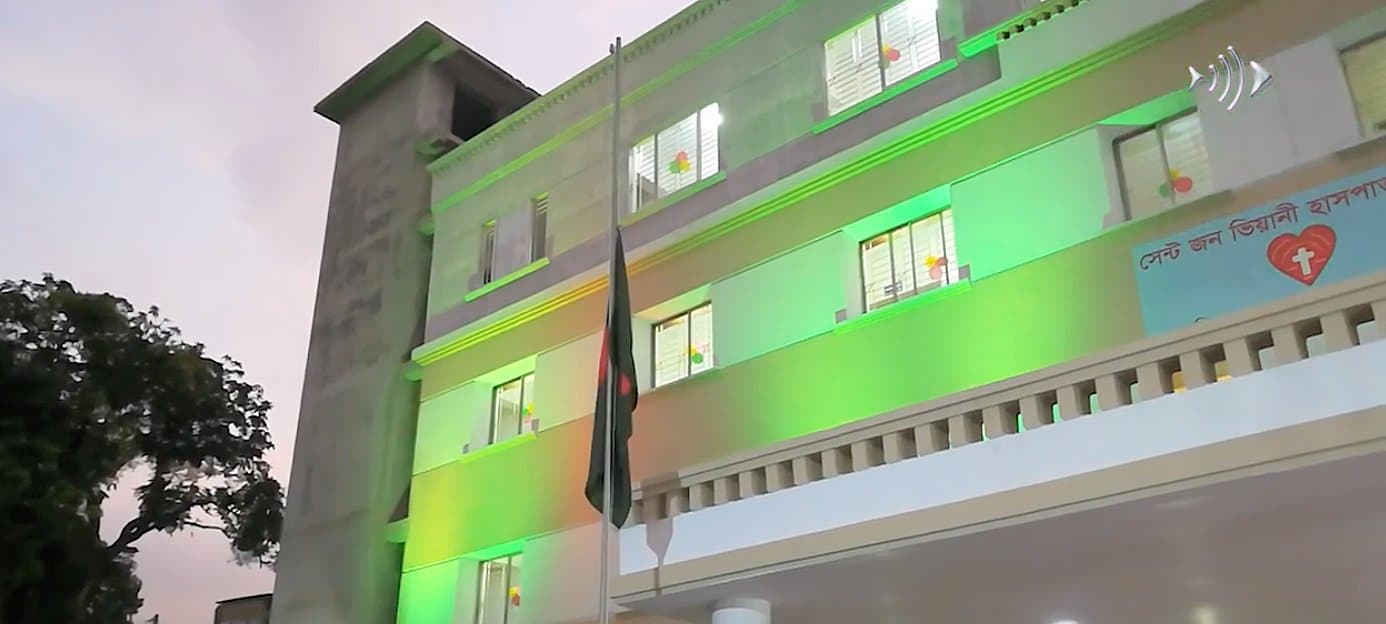DHAKA, Bangladesh — As the COVID-19 situation worsens in Bangladesh, the country’s tiny Catholic community has been playing a vital role in battling the outbreak, despite limited resources.
Church-run St. John Vianney Hospital, which started operating in November 2019, has served thousands of coronavirus patients since the virus hit the country in March 2020. Some 700 patients have been hospitalized there.
Father Kamal Corraya, hospital director, told ucanews.com that the hospital’s 20 beds have been reserved for COVID-19 patients.
“We have a central oxygen facility for 20 patients but have yet to arrange an ICU for the patients, as it is expensive. We realize the ICU is very urgent for us,” Corraya told ucanews.com.
As the COVID-19 situation keep worsening, with many patients failing to get treatment, the hospital decided to treat as many as possible with minimum costs, the priest said.
“When we get any critical patients, we refer them to other hospitals where they can get an ICU facility. In maximum cases, we succeed in arranging ICU beds through our connections in various hospitals. Our biggest obstacle is that our health workers are being affected, so we have to hire new staff and spend a lot of money to treat them,” the priest added.
Kishore Gomes, 36, a Catholic who received treatment for COVID-19 in the hospital and recovered recently, told ucanews.com he appreciated its services.
“I can say this hospital is not business-minded and prioritizes services. The cost is much lower than other private hospitals,” Gomes said.
The pandemic has hit the tiny Catholic community of an estimated 400,000 people in the Muslim-majority nation of more than 160 million.
There is no exact data on how many Catholics have succumbed to the virus. Archbishop Moses Costa of Chittagong died of COVID-19 in July 2020. At least two other priests also died of COVID-19.
Bishop Sebastian Tudu of Dinajpur said 10 priests and around 20 nuns of the diocese had tested positive for COVID-19, but they all recovered after treatment.
“Our priests need to run to villages for their pastoral work, and I think that’s why they got infected,” Tudu added.
The Association of Catholic Doctors of Bangladesh has been providing telemedicine services free of charge.
“In fact, it is risky to go to (the) hospital because of the COVID-19 pandemic. We have launched this telemedicine service so that anyone can get the service from home for any kind of illness while they struggle for transport,” Dr. Edward Pallab Rozario, president of the association, told ucanews.com.
Meanwhile, eight regional offices of the Catholic charity Caritas have reached out to vulnerable people whose livelihoods have been seriously impacted.
As of June, Caritas had mobilized funds equivalent to $4.55 million for COVID-19 emergency interventions, said James Gomes, program director at Caritas Bangladesh.
“Since the beginning in mid-March 2020, Caritas has been providing emergency assistance to affected people through mobilizing funds from existing disaster risk reduction, recovery and development projects with prior approval of donors, mobilizing new funds from Caritas Internationalis member organizations, international and national NGOs, and private donors,” Gomes told ucanews.com.
Gomes said the agency looks forward to alternative income-generating projects for people who lost jobs, to train young people to get better jobs and to protect the poor through social safety nets, but a lack of funds for such projects and long-term livelihood plans pose challenges.
Meanwhile, Catholic youth groups such as Young Christian Students, Bangladesh Catholic Students’ Movement and some parish-based organizations have moved ahead to help the poor in their localities.
Bangladesh has been struggling to contain the more lethal third wave of the pandemic in recent weeks due to the outbreak of the delta variant.
The country has recorded 1.4 million COVID-19 cases and more than 25,500 deaths. The government has rolled out a nationwide mass vaccination campaign, and the age limit for vaccines has been lowered to 25 years.















